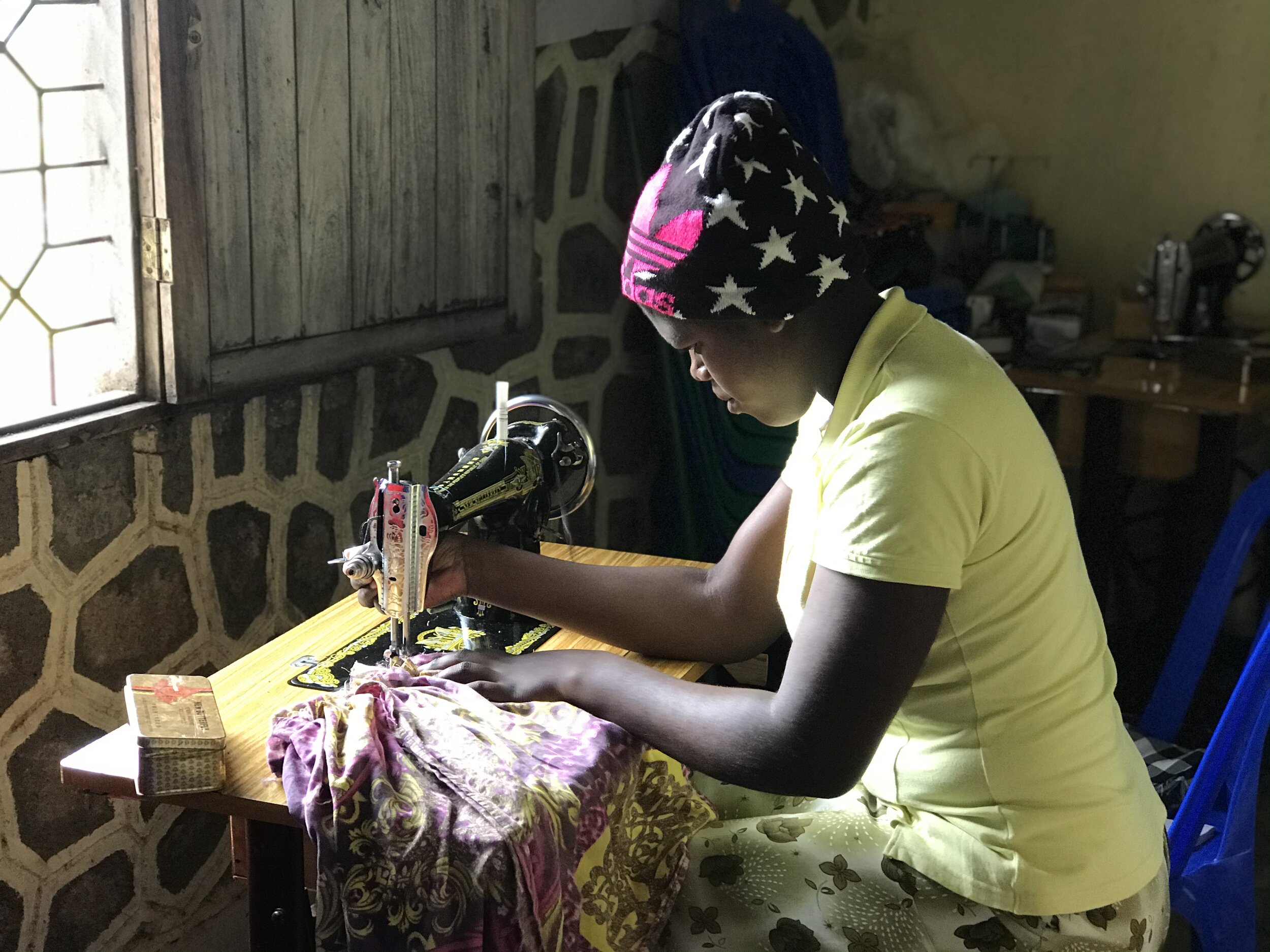What would you do?
Have you ever imagined what your life would look like if an accident was going to happen to you? Would you have the strength to keep going on?
Neema surely has. Seven years ago, Neema went to one of the larger regional hospitals to get treatment for typhoid. Unfortunately, Neema experienced nerve damage during her treatment and lost most of the mobility in her legs.
Neema is now 31 years old and lives with her parents. She relies on their help for all her basic needs. Neema also has three younger siblings who all still go to school.
Being dependent of her parents has had a huge impact on Neema’s mental health. She has been struggling with depression and feelings of being a burden to her family. As the family already lives in poverty having a member of the family not able to contribute financially is a huge strain. On top of that, there are all Neema’s extra medical bills.
Finding Neema
Our Outreach Team met Neema in 2019 and has since been working in close partnership with her and her family. This free service has provided Neema with a variety of treatment options for both her physical and mental health.
With the help of our team, Neema has regained some movement in her legs and has literally taken her first few steps towards independence.
It is Neema’s desire to get to a point where she can support herself and contribute to her family. She is grateful to her family, particularly her parents, for the support they have given her through the difficulty times she has encountered. She hopes she one day will be able to return the kindness she has received.
A new beginning
Neema is excited to start our entrepreneurial training.
She says “I have some basic knowledge on sewing. I learnt a while ago before I suffered from paralysis, and I am confident that I can regain some skills if I will get the opportunity to practice again. It is something am interested about and something I am capable of doing”.
According to Neema’s physiotherapist, the tailoring training will help Neema to re-gain her sewing skills and hopefully help her to earn an income. It will empower and strengthen her emotionally, mentally, and physically. Sewing provides an opportunity to rebuild physical strength and this project also provides her with an opportunity to be surrounded by others who are facing similar challenges.
What is typhoid?
Typhoid is a bacterial disease spread through dirty water and can be life-threatening if not treated.
The residents of Nyamatongo Ward do not have access to treated water. The only water source is water collected from the lake. With no sewage systems in place, long-drops or open defecation is the norm and is naturally led to the water. Typhoid, and other waterborne diseases are very common in the area.
In fact, diarrhea, which is often caused by typhoid, is the biggest cause of death for children under five.
Can you help Neema and people like her?
Will you give a tax-deductible gift to help Neema and others like her become agents of change in their communities?
Your gift can pay for training, material and sewing machines to help people with disabilities learn income-generating skills and challenge social stigma.
Changing Lives begins with you. We can’t do it without you.








